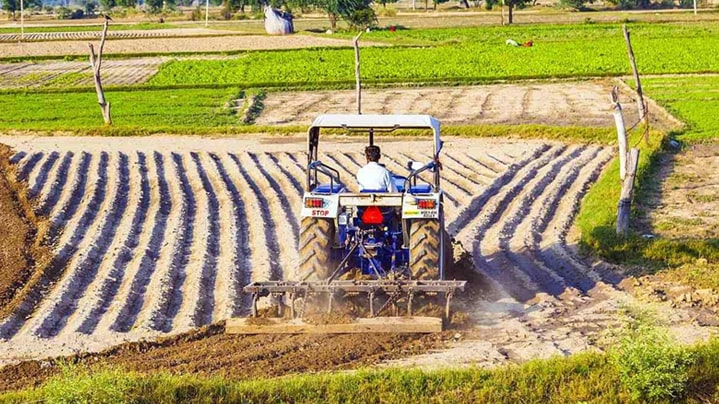Agriculture is so important to Nigeria that it is well represented on her flag and on the Coat of Arms; the two major colorful symbols of any nation in the world. On the flag, there are two greens. A middle white separates them. The greens represent the country’s wealth, agriculture. On the Coat of Arms, there is a beautiful Black Shield in the center with colorful wreaths. It indicates the fertile soil of the Country for agriculture.

When Nigeria gained her independence from the British, food export made more than 70% of the country’s Gross National Product (GNP) but over the years, we import more than 50% of the food that we usually exported. We now export far less! There is gross hyper-inflation of goods and services. The margin between the poor and the rich has multiplied. The economic situation shatters the hopes and dreams of the youth, the strength of the nation. It makes them barely think only about how to survive a day or two. It is no news that the country is going through the worst economic crisis since COVID-19. Why is this?
History reveals that prior to COVID, Nigeria has usually depended on crude oil for most of her wealth. Crude oil was the major source of foreign exchange. However, the pandemic has reduced the need and demand for fossil fuel to an all-time low level and consequently, the free fall in the price of crude oil because of the latest innovation of bio-fuel solutions, solar power machinery and electric cars by these countries.
Besides, crude oil has been a homeland of uncontrolled greed, theft and corruption these whole years. Our leaders have been caught red-handed in this act, some have been arrested while some others have maneuvered their ways . Some reports even attest to the fact that if we are just able to recover all stolen money from petroleum, then we have just cleared all of Nigeria’s debt. What a mess!
While I do not dispute the fact that export of crude oil is important, let us think about agriculture.
Agriculture is a sector of the Nigerian economy, accounting for about 35% of total employment in 2020. Agriculture remains the foundation of the Nigerian economy.
Nigeria has a total agricultural area of 70.8 million hectares, of which 34 million hectares are arable land. We use about 6.5 million hectares for permanent crops, and 30.3 million hectares for meadows and pastures.
Between January and March 2021, the agriculture contributed to 22.35 percent of the total Gross Domestic Product. About 70 percent of Nigerians engage in the agriculture sector mainly, but at a subsistence level. We underutilize our fertile soil and we are doing far less than what we are capable of.

We have fertile soils. Our climate favors agriculture than any other country in the Universe. We have the ability to think and do great things on our own. This is why, when Nigerians travel out of the country, we do great things. We have bright universities offering Agriculture. And top of it all, we have a resilient and tenacious spirit. We are able to weather every wave of challenges and fight through and win. If the government, our leaders rightly encourage and invest sufficiently into agriculture, why will we not succeed? We have faced different challenges on the aspect of agriculture but with all that we have, we can overcome.
We should all practice agriculture, however small but with a big vision.
Let us put an end to hunger and poverty in our lives by engaging a more profitable agriculture.
Our farmers, everyone, should be educated on at least the basic principles of improved agriculture in order to completely alienate the mentality that agriculture is a job of the poor masses.
Let us put our hands together and devote the tech skills and ideas and initiatives that we have learned from different other fields into making this corporeal resource, our fertile soil, a cash cow.
Thanks to the advent of Dangote Oil Refinery! We can now process into finished products to increase the national revenue. As we generate more revenue, our government should invest more into agriculture. Nigeria’s economy can be mitigated by boosting local production with consumption of locally produced goods through taxes and tariffs. By diversifying the nation’s economy into other sectors such as agriculture, manufacturing, processing, the export of processed products instead of raw/crude products, we are definitely unveiling the cash cow.
What do you think?



Leave a Reply